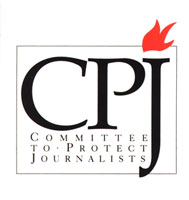The 10 tools of online oppressors

In reporting news from the world's most troubled nations, journalists have made a seismic shift this year in their reliance on the internet and other digital tools. Blogging, video sharing, text messaging, and live-streaming from cellphones brought images of popular unrest from the central square of Cairo and the main boulevard of Tunis to the rest of the world.
Yet the technology used to report the news has been matched in many ways by the tools used to suppress information. Many of the oppressors' tactics show an increasing sophistication, from the state-supported email in China designed to take over journalists' personal computers, to the carefully timed cyber-attacks on news websites in Belarus. Still other tools in the oppressor's kit are as old as the press itself, including imprisonment of online writers in Syria, and the use of violence against bloggers in Russia.
To mark World Press Freedom Day, May 3, the Committee to Protect Journalists is examining the 10 prevailing tactics of online oppression worldwide and the countries that have taken the lead in their use. What is most surprising about these Online Oppressors is not who they are - they are all nations with long records of repression - but how swiftly they adapted old strategies to the online world.
In two nations we cite, Egypt and Tunisia, the regimes have changed, but their successors have not categorically broken with past repressive practices. The tactics of other nations - such as Iran, which employs sophisticated tools to destroy anti-censorship technology, and Ethiopia, which exerts monopolistic control over the internet - are being watched, and emulated, by repressive regimes worldwide.
View the 10 prevalent tools for online oppression on CPJ.org.




















